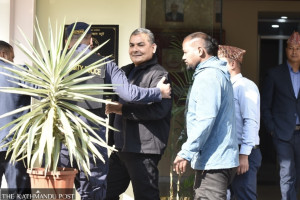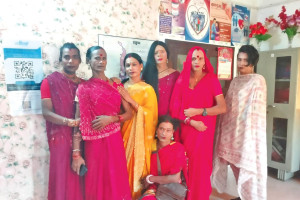National
Kathmandu declaration calls for action to ensure access to justice for persons with disabilities
The declaration, which was elaborated by the ICJ and TCI, in consultation with other advocates, calls on states in the region to take immediate action to improve access to justice for persons with disabilities.
Post Report
The International Commission of Jurists (ICJ) together with Transforming for Community Inclusion (TCI) and in collaboration with KOSHISH and Nepal Disabled Women’s Association launched the Kathmandu Declaration on Access to Justice for Persons with Disabilities, in Bangkok.
The declaration, which was elaborated by the ICJ and TCI, in consultation with other advocates including organisations of persons with disabilities, calls on states in the region to take immediate action to improve access to justice for persons with disabilities.
“The declaration was developed to foster legal and policy reform in the Asia region, where countries have adopted and perpetuated discriminatory and medicalised approaches to disability, embedded in laws, policies and practices,” read a press release issued after the launch of the declaration. “They fail to provide for equal protection of the rights of persons with disabilities, drastically curtailing their access to justice.”
According to the organisers, the Bangkok launch event, hosted by TCI, event brought together more than 100 participants, including members of the UN Committee on the Rights of Persons with Disabilities (CRPD Committee), government officials from Thailand, persons with disabilities acting as advocates, civil society organisations representing persons with disabilities, lawyers and other justice actors, and representatives of different UN agencies around the globe.
Commenting on the declaration, ICJ legal adviser Karuna Parajuli stressed that, “Many states in Asia are failing to fully protect the rights of persons with disabilities to access justice. This is a particularly acute problem in respect of persons with psychosocial disabilities. It remains common practice for laws and policies claiming to protect mental health to force persons with psychosocial disabilities to be treated and be confined to institutionsbased solely on their disability.”
The declaration is based mainly on the rigorous deliberations at a conference co-hosted by the ICJ in Kathmandu in May 2024, said Parajuli. During the deliberations, participants revealed that a number of laws common to many Asia-Pacific countries, including mental health laws, serve to strip persons with psychosocial disabilities of legal capacity, the press release said. Lack of legal capacity prevents them from participating fully in legal proceedings and processes often leads to their institutionalisation, it said.
“Institutionalisation as a global problem is a form of denial of legal capacity that results to violation of different other human rights like coercion, torture, abuses and segregation of the person with disabilities,” said Dr Samueal Njuguna Kabue, CRPD Committee member, at the launch event.




 12.12°C Kathmandu
12.12°C Kathmandu














